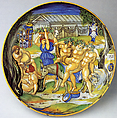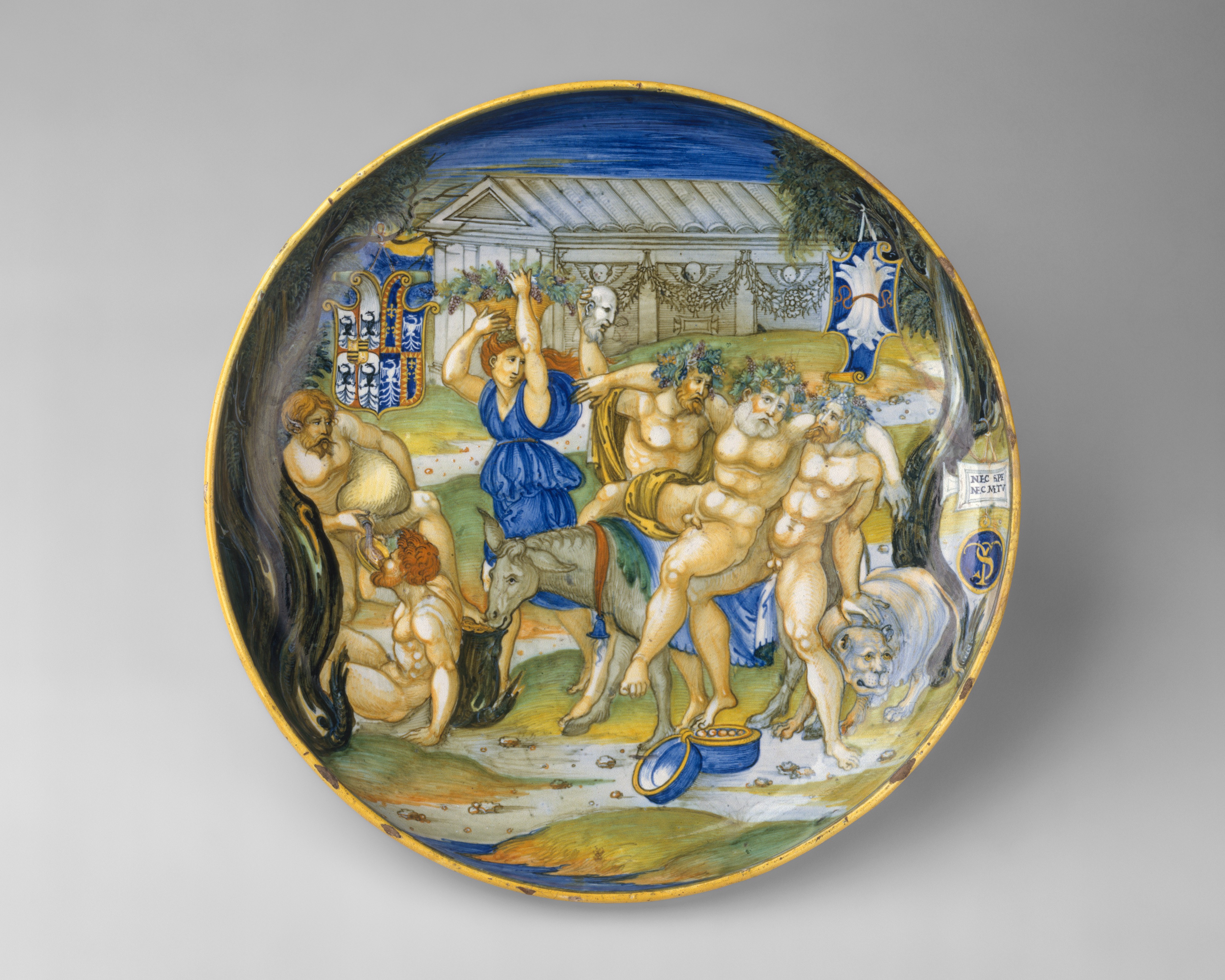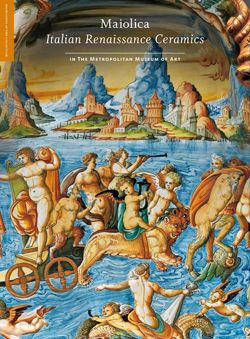Armorial Plate: Silenus on an ass, supported by Bacchic revelers
Nicola da Urbino Italian
In Renaissance Italy, fine maiolica was often associated with the relaxed yet elegant atmosphere of the country estate, where hospitality was generally overseen by women. This plate belongs to a service commissioned by Eleonora Gonzaga, Duchess of Urbino, as a gift for her mother, Isabella d’Este, Marchioness of Mantua. On all the known pieces, Isabella's arms are joined with those of her husband, Gianfrancesco Gonzaga. The arms are frequently accompanied by mottoes and heraldic or personal badges belonging to Isabella or her husband. Twenty-one pieces of the service survive, all decorated by the greatest maiolica painter of the sixteenth century, Nicola da Urbino. Intended for use at Isabella’s rural villa, the dishes are decorated with scenes of revelry (such as this drunken Silenus), a theme well-suited to countryside entertaining. Bacchic revelers support Silenus, who is too drunk to walk or sit unaided on a donkey. The composition is based on an engraving by Marcantonio Raimondi after a design by Raphael.
Due to rights restrictions, this image cannot be enlarged, viewed at full screen, or downloaded.
This artwork is meant to be viewed from right to left. Scroll left to view more.





